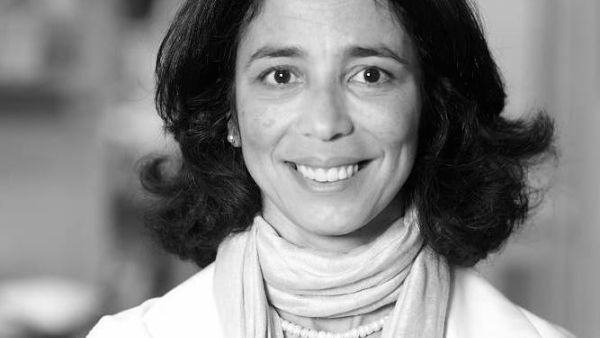Miriam Merad is one of the most prominent Algerian scientists. Having proven herself in major American universities and laboratories and earned a spot in the US’s prestigious National Academy of Sciences, she is one of the most important Arab medical leaders contributing to humanitarian efforts to fight the coronavirus pandemic. However, her decision to work abroad rather than in her native country is driving home the problem of brain drain from North Africa and the broader region.
Merad, who is a professor of oncological science, medicine and immunology and a member of the Immunology Institute and The Tisch Cancer Institute at the Mount Sinai School of Medicine in New York, has an impressive resume. She obtained her MD at the University of Algiers, completed her residency in hematology and oncology in Paris, France and obtained her PhD in immunology in collaboration with Stanford University and the University of Paris VII. She then became programme leader of the Cancer Immunology Immunotherapy group at The Tisch Cancer Institute and the director of the Human Immunomonitoring Center at the Immunology Institute at the Icahn School of Medicine at Mount Sinai (PrIISM). Today, she is a member of an exclusive group of international scientists elected as members of the prestigious academy established in 1863 under the supervision of the late US President Abraham Lincoln.
Individual competencies
When Merad was declared a member of the National Academy of Sciences, women had no notable presence in Algeria’s scientific and medical leadership. The embarrassing dichotomy left Algerian President Abdelmajid Tebboune with little option but to issue a letter of congratulations to Merad, which was widely shared by local media.
The Algerian researcher stated in her first media appearance on local radio station Setif that she is conducting research and experiments in a New York laboratory to help develop a vaccine for COVID-19.
She said that she was given the opportunity due to her distinguished scientific research focused on the immune system. “Everyone should know that the research I do with the medical team has to do with strengthening the immune system,” she said.
Last year, Merad published a study in an American scientific journal in which she outlined the benefits of fasting has on a cellular level in healthy individuals. Through blood samples taken from 12 healthy people who refrained from eating for 19 hours, Merad and fellow researchers noted that fasting helps cells responsible for fighting inflammation. She believes that these “cells that are sent to treat wounds and prevent infection, also accumulate in the Adipose tissue and contribute to chronic illnesses such as diabetes and heart disease, and that refraining from eating some meals may help some people live longer and healthier.”
In another study published in Science Magazine in 2010, she revealed that macrophages, which are formed in response to an infection or accumulating damaged or dead cells, arise from precursors during embryonic development, and play a distinctive role in organ physiology and patho-physiology. This study was cited thousands of times due to its critical clinical implications. Merad and her team also determined the contribution of macrophages in the development of cancer cells, response to treatment and inflammatory bowel disease, in studies published in prominent journals such as nature, cell, and science.
Anne and Joel Ehrenkranz, dean of the Icahn School of Medicine at Mount Sinai and president for academic affairs, Mount Sinai Health System said that Merad’s discoveries helped change the course of medical treatments and that her work highlights the way the human immune system responds to diseases.
Like many other Algerians, Merad received no recognition at home apart from a congratulatory message from her president. Apart from spending an annual vacation in her hometown, she has little connection with Algeria, which continues to suffer from its mediocre institutions.
This article has been adapted from its original source.







